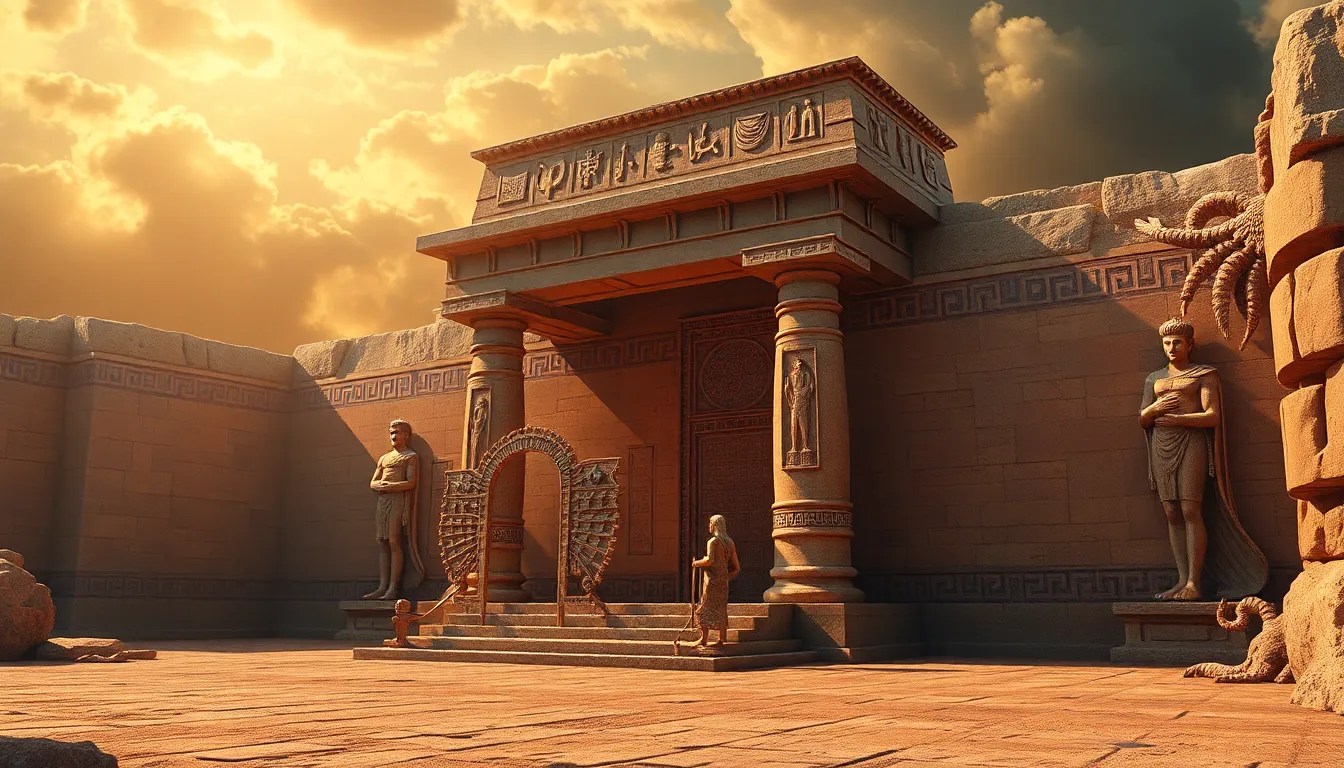The Oracles of Babylon: A Study of Spiritual Beliefs
I. Introduction to Babylonian Spirituality
The ancient civilization of Babylon, which thrived in Mesopotamia, is renowned for its rich cultural heritage and significant contributions to human civilization. Babylonian spirituality played a crucial role in shaping the lives of its people, influencing everything from governance to personal decisions.
Religion was interwoven into the fabric of daily life in Babylon; it was not merely a set of beliefs but a guiding framework that dictated social norms, laws, and personal conduct. The Babylonians believed in a pantheon of gods and goddesses, each with specific roles and attributes, which influenced their understanding of the world around them.
Among the various spiritual practices in Babylon, oracles held a place of particular importance. Oracles were seen as intermediaries between the divine and the mortal, providing guidance and insight into the will of the gods.
II. Historical Context of Babylonian Oracles
Oracular practices emerged in ancient Mesopotamia around the 3rd millennium BCE, manifesting as a vital aspect of Babylonian spirituality. These practices were not confined to one period but evolved over centuries, adapting to cultural and political changes.
Key historical figures, including priests and kings, were often associated with oracular practices. They sought divine insight to make decisions regarding warfare, agriculture, and governance. Over time, oracular practices became more sophisticated, leading to the establishment of formalized methods of divination.
III. Types of Oracles in Babylon
Babylonian priests employed various divination methods to interpret the will of the gods. The most prominent types included:
- Haruspicy (liver divination): This method involved examining the liver of sacrificed animals, believed to be a reflection of divine messages.
- Astrology and celestial observations: Babylonian astrologers studied the movements of celestial bodies, believing that the stars and planets influenced earthly events.
- Dream interpretation: Dreams were considered a vital source of divine communication, and priests would interpret them to provide guidance.
Each method held significance in the decision-making process, providing a framework for understanding the divine will and its implications for daily life.
IV. The Role of Priests and Priestesses
Oracles were typically carried out by priests and priestesses who underwent rigorous training. Their responsibilities included performing rituals, interpreting signs, and conveying the will of the gods to the people.
Notable priestly figures, such as the high priest of Marduk, played critical roles in shaping Babylonian spirituality. These individuals often had extensive knowledge of religious texts and rituals, allowing them to serve as authoritative voices in matters of spiritual significance.
Gender dynamics also influenced the practice of oracles. While male priests dominated many aspects of religious life, women, too, held important positions as priestesses, particularly in female-associated deities’ worship.
V. The Connection Between Oracles and Deities
The oracular process was deeply intertwined with the worship of major deities. Gods such as Marduk, the chief deity of Babylon, were believed to provide guidance through oracles.
The interplay between divine will and human interpretation was crucial. Priests believed they could decipher the gods’ messages, but the accuracy of these interpretations was often debated.
Rituals and offerings were integral to seeking oracle guidance, with devotees presenting gifts to appease the gods and ensure favorable responses. Common practices included:
- Animal sacrifices
- Libations of wine and oil
- Incense burning
VI. Case Studies of Famous Oracles
Throughout Babylonian history, specific events were significantly influenced by oracles. One notable case is the Oracle of Marduk, which was consulted before pivotal decisions, such as going to war or instituting new laws.
Another significant moment involved the prophecy given to King Nebuchadnezzar II, which predicted the rise and fall of empires. These prophecies not only shaped the actions of leaders but also influenced public perception and societal norms.
The outcomes of these prophecies often resonated through history, solidifying the importance of oracles in Babylonian culture.
VII. The Decline of Oracular Practices
Several factors contributed to the decline of oracular practices in Babylon. The rise of foreign powers and cultural assimilation led to a gradual erosion of traditional beliefs. As new religions and philosophies entered the region, the reliance on oracles diminished.
The impact of foreign rule, particularly during the Persian and later Greek conquests, introduced alternative systems of governance and spirituality, further marginalizing Babylonian oracular practices.
Despite this decline, the legacy of Babylonian oracles persisted, influencing later spiritual traditions and practices, particularly in the realms of astrology and divination.
VIII. Conclusion: The Enduring Influence of Babylonian Oracles
Oracles played a pivotal role in understanding Babylonian spirituality, serving as a bridge between the divine and the earthly. Their significance extended beyond mere predictions, reflecting a complex interplay of faith, culture, and governance.
Today, the relevance of oracular beliefs can still be seen in various contemporary spiritual practices that seek guidance from higher powers. The fascination with divination and the quest for understanding the unknown continues to resonate in modern culture.
In summary, the legacy of Babylonian oracles endures, offering valuable insights into the spirituality of one of history’s most influential civilizations.



